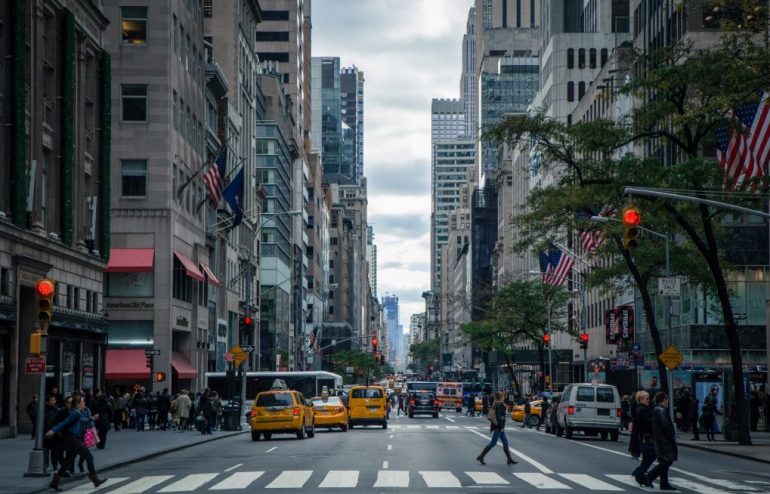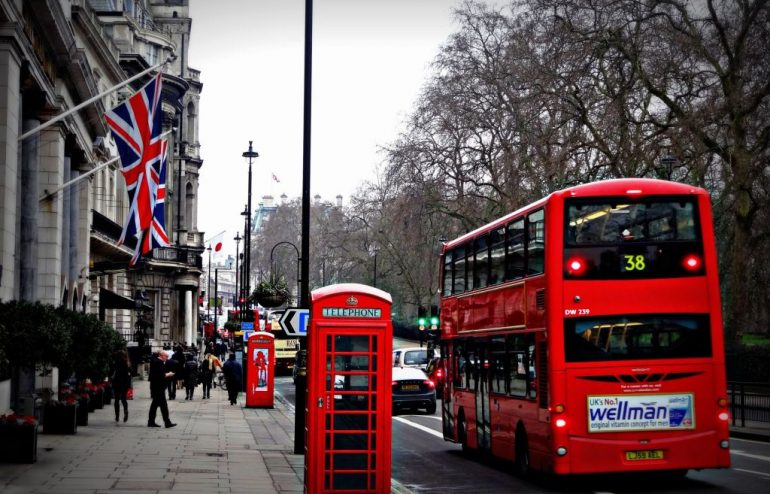Introduction
With the improvement of technology and increase in cross-border transactions, there is a growing shift towards using ecommerce channels in conducting business activities. This brings along with it benefits such as appealing to a wider customer base without incurring the overhead costs involved in running and expanding brick-and-mortar businesses. Developments in fintech solutions have been instrumental to facilitating the adoption of ecommerce in Nigeria. The cost of integrating payment solutions to platforms has drastically reduced over the years and as such it has become more accessible to the general public who intend to use these solutions to receive payments for products and services sold through the internet. Ecommerce has particularly proved itself as a viable means of continuing sales during the COVID-19 pandemic where movement was limited.
Internet user penetration in Nigeria is estimated to be 46.6% in 2020 and is expected to be 65.3% by 2025.[1] With this, Nigerian ecommerce spending is estimated to be $12 billion as at 2020.[2] However, despite the benefits of ecommerce, it is accompanied by various challenges including intellectual property infringement. In this article, we will be examining intellectual property infringement and how it can be avoided in ecommerce through notice for takedown schemes.
Intellectual property infringement under various laws
Simply put, intellectual property infringement occurs when a person uses, produces or sells content, designs, methods, procedures, products, etc. without the permission of the owner. In Nigeria, the main laws governing intellectual property are as follows:
- Copyright Act, Cap. C28 Laws of the Federation of Nigeria 2004
- Trade Marks Act, Cap. T13 Laws of the Federation of Nigeria 2004
- Patents and Designs Act, Cap. P2 Laws of the Federation of Nigeria 2004
Under the Copyright Act, an infringement is said to occur when a person does any of the following without the licence or authorization of the copyright holder:
- Does or causes any other person to do an act that is controlled by copyright;
- Imports into Nigeria, otherwise than for his private or domestic use, any article in respect of which copyright is infringed;
- Exhibits in public any article in respect of which copyright is infringed;
- Distributes an article by way of trade, offer for sale, hire or otherwise or for any purpose prejudicial to the owner of the copyright;
- Makes or has in his possession, plates, master tapes, machines, equipment or contrivances used for the purpose of making infringed copies of the work;
- Permits a place of public entertainment or of business to be used for a performance in the public of the work, where the performance constitutes an infringement of the copyright in the work, unless the person permitting the place to be used is not aware, and had no reasonable ground for suspecting that the performance would be an infringement of the copyright;
- Performs or cause to be performed for the purposes of trade or business or as supporting facility to a trade or business or as supporting facility to a trade or business, any work in which copyright subsists.[3]
With regards to patents and designs, rights of a patentee or design owner are infringed if another person makes, imports, sells, or uses the product or applies the process without a licence from the patent owner.[4]
Under the Trade Marks Act, an infringement is said to occur when a person, who is neither the trademark owner nor a person authorised by the trademark owner, uses a mark that is identical with or similar to the trademark such that it is likely to deceive or cause confusion in the course of trade.[5]
Currently, the ways of handling intellectual property infringement in Nigeria range from measures such as cease and desist letters to litigation. However, at this juncture it would be proper to look into the possibility of adopting notice for takedown schemes.
Notice for takedown scheme in Nigeria as a means of resolving intellectual property infringement
The present intellectual property regime in Nigeria does not make provision for notice for takedown schemes. At best, it is left to the discretion of ecommerce service providers. However, the draft Copyright Bill 2015 contains provisions governing notice for takedown regarding content that is shared online.
Section 47(1) of the Bill provides thus:
“The owner of copyright in a work in respect of which copyright has been infringed, may issue notice of such infringement to the relevant service provider requesting the service provider to take down or disable access to any infringing content or link to such content, hosted on its systems or networks.”
The Bill defines a service provider as “a provider of online services or network access, or the operator of facilities therefor, and includes an entity offering the transmission, routing, or providing of connections for digital online communications, between or among points specified by a user, of material of the user’s choosing, without modification to the content of the material as sent or received”.[6] This provision would give copyright owners the right to notify service providers, such as e-commerce stores, internet service providers and content providers, of an ongoing intellectual property infringement. The notification is required to fulfill the following criteria:
- It must be in writing.
- It should be signed, either physically or electronically, by a person authorized to act on behalf of the copyright owner.
- The work claimed to have been infringed should be identified.
- The infringing material or activity should be identified in such a way as to enable the service provider locate the material.
- The contact information of the complaining party should be provided.
- The complaining party should make a statement that they believe, in good faith, that the use of the material is not authorized by the copyright owner, his agent or the law.
- The complaining party is to make a statement that the information in the notification is accurate and that the complaining party has authority to act on behalf of the copyright owner.[7]
In the same vein, a service provider has certain duties to fulfil upon receiving a notice of infringement. Section 48(1) of the Bill requires the service provider to notify the subscriber responsible for the alleged infringing content of the infringement notice.
The subscriber in question has 10 days to provide information justifying the continued keeping of the alleged infringing content. Although the Bill does not expressly specify criteria that the subscriber must satisfy, it can be deduced that a subscriber should show either of the following:
- The infringing material is different from the work alleged to be infringed on; or
- The subscriber has a licence to use the work alleged to be infringed on.
If the service provider is satisfied by the information provided the subscriber, they shall inform the complaining party of their decision not to take down the content.[8]
If the subscriber fails to provide justification, Section 48(2) of the Bill requires the service provider to take down or disable access to the infringing content or links to such content hosted on its systems or networks and subsequently notify the copyright owner.
From the foregoing, it can be seen that ecommerce service providers would be expected to accord sellers who utilize their platforms the right to fair hearing before taking any action to resolve the issue.
In a situation where the work alleged to be infringed on is in fact the infringing material, the subscriber can submit a written counter notice to the service provider. The counter notice will be submitted to the copyright owner who would be required to show that the subscriber was not authorized to make the content available.[9]
It must be noted that the notice for takedown scheme as provided in the Copyright Bill 2015 was not intended to be final. Any party who is dissatisfied with the decision of the service provider has the right to appeal the decision to the Nigerian Copyright Commission. Parties could further appeal to the Federal High Court.[10]
Application of notice for takedown scheme in patent infringement cases
Copyright infringement is not synonymous with patent infringement and as such issues may arise in attempting to apply the foregoing provisions of the Copyright Bill, should the Bill receive Presidential assent. In spite of this, the spread of ecommerce necessitates stakeholders to extend the possibility of resolving patent infringement matters through notice for takedown schemes. Incorporating a notice for takedown framework to specifically address patent infringement issues can help to facilitate dispute resolution without going through lengthy court processes.
There arise certain challenges in adopting notice for takedown schemes in cases of patent infringement. While notice for takedown schemes relate to removing information that is stored in a system, resolving patent infringement issues requires the restriction of sales of the patented item. However, in the case of ecommerce it can be argued that a sale taking place on an ecommerce platform relies on the presence of the relevant advertising medium (content) on the ecommerce platform’s system and as such taking down the offending content from the servers would help to curtail the sale of the infringing item.
Conclusion
A reliable intellectual property regime is an important aspect of ensuring business success and promoting economic growth and investment. Intellectual property infringement has a negative effect on innovation and research and development efforts. In addition to this, the present justice dispensation in Nigeria is in need of important reforms to enable it deal with cases in a timely, efficient and effective manner.
The Copyright Bill 2015 was approved by the Federal Executive Council in 2017 and is currently awaiting review and passage into law by the National Assembly. Once the Bill is passed, it would become easier to implement the notice for take down scheme due to the presence of existing framework. By extension, this would form a blueprint for the application of a similar scheme to incidences of patent infringements.
For inquiries and further information, email us at inq@grfdalleyandpartners.com
Footnotes:
[1] https://www.statista.com/statistics/484918/internet-user-reach-nigeria/
[2] https://www.thisdaylive.com/index.php/2020/01/09/of-ecommerce-growth-and-digital-economy/
[3] Section 14 Copyright Act 2004
[4] Section 25 Patents and Designs Act 2004
[5] Section 5 Trade Marks Act 2004
[6] Section 47(3) Copyright Bill 2015
[7] Section 47(2) Copyright Bill 2015
[8] Section 48(3) Copyright Bill 2015
[9] Section 48(4) Copyright Bill 2015
[10] Section 81 Copyright Bill 2015







